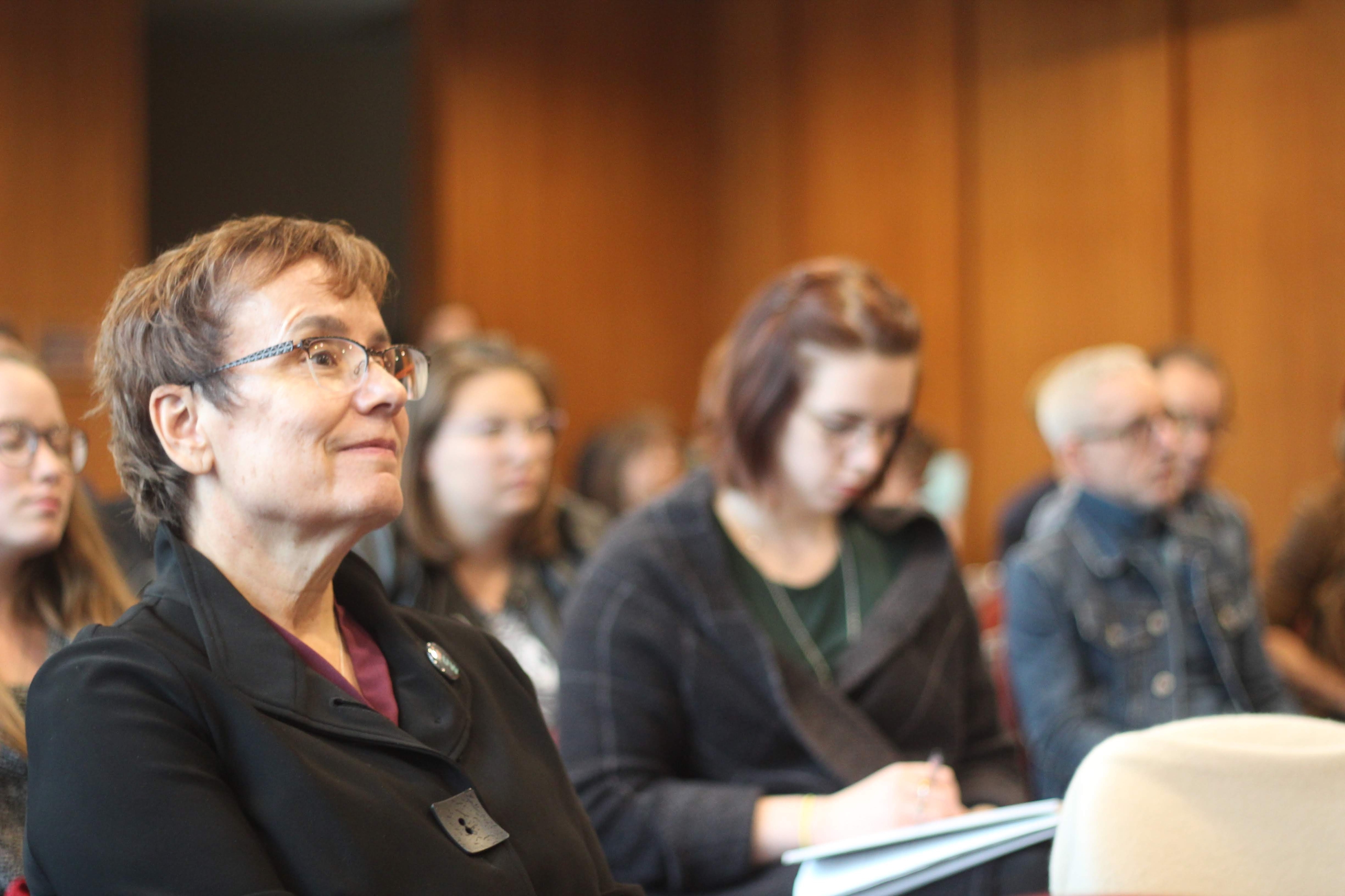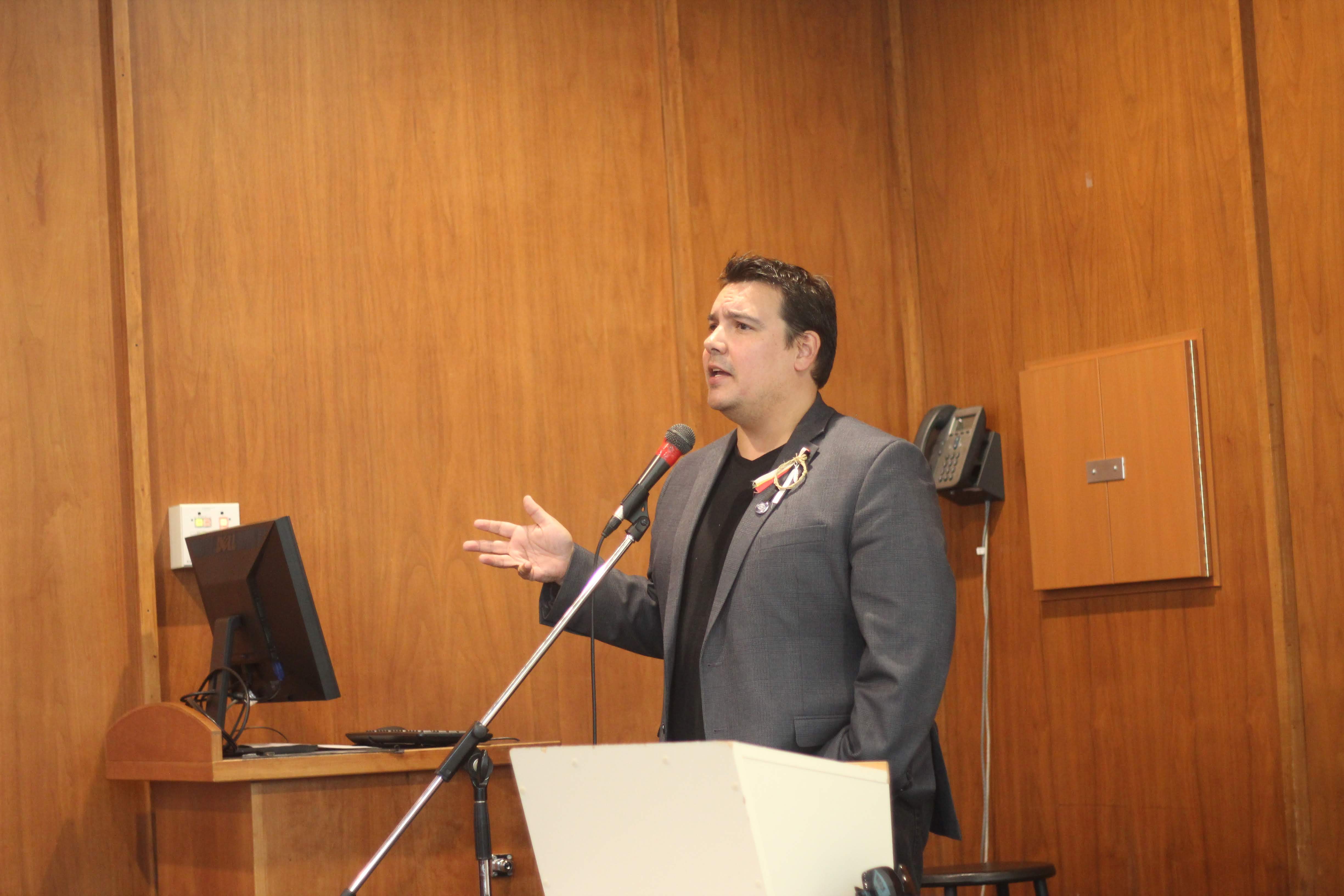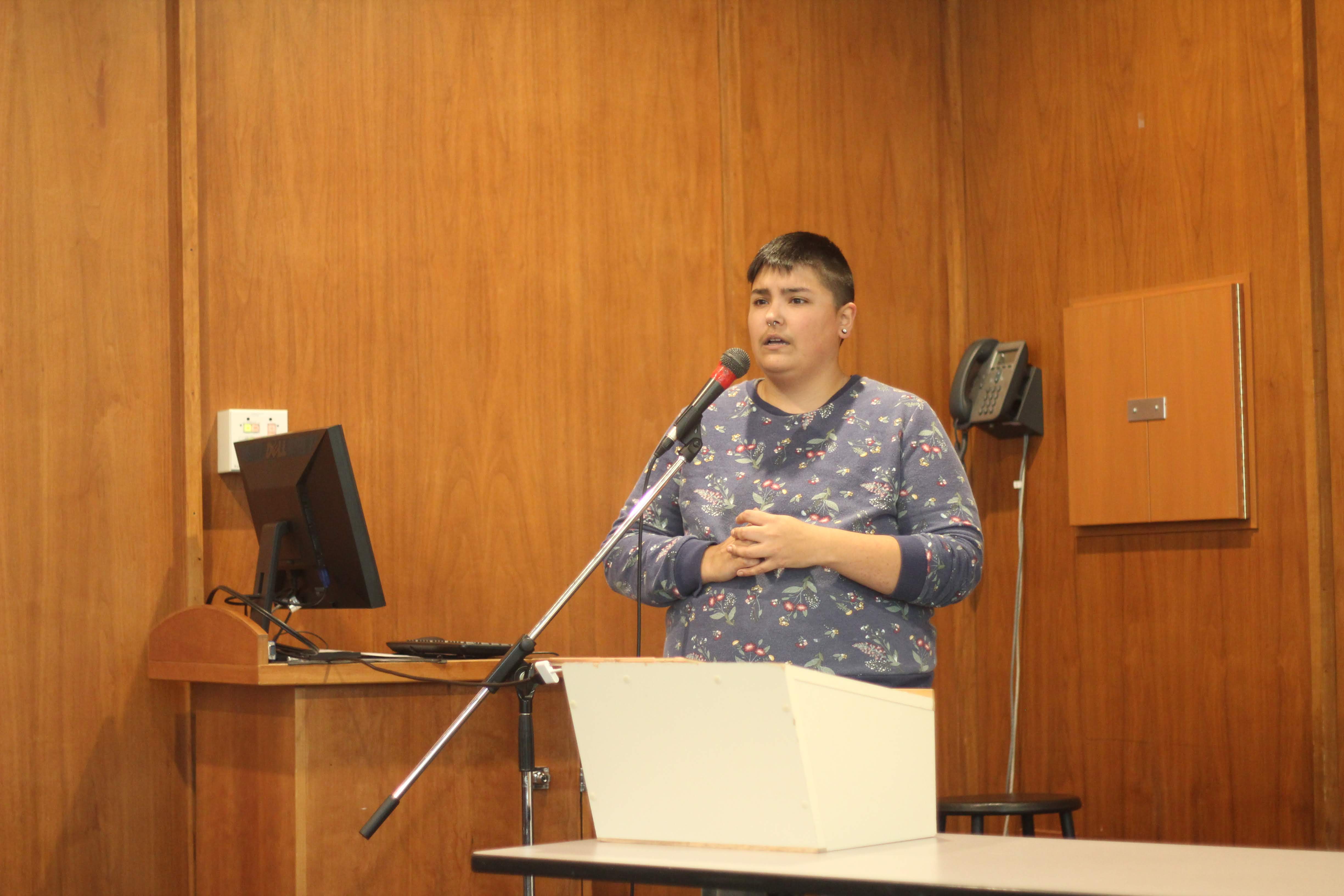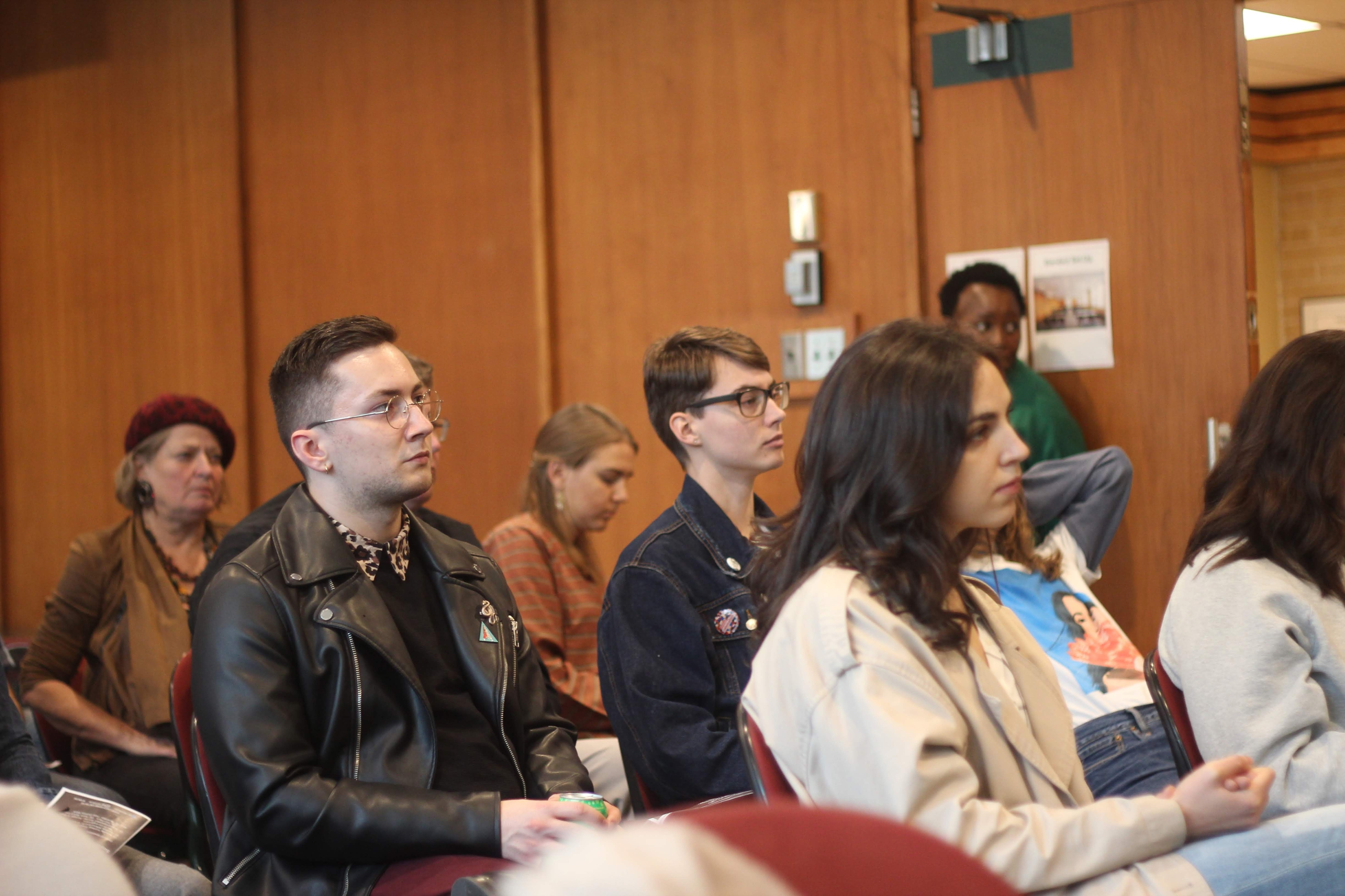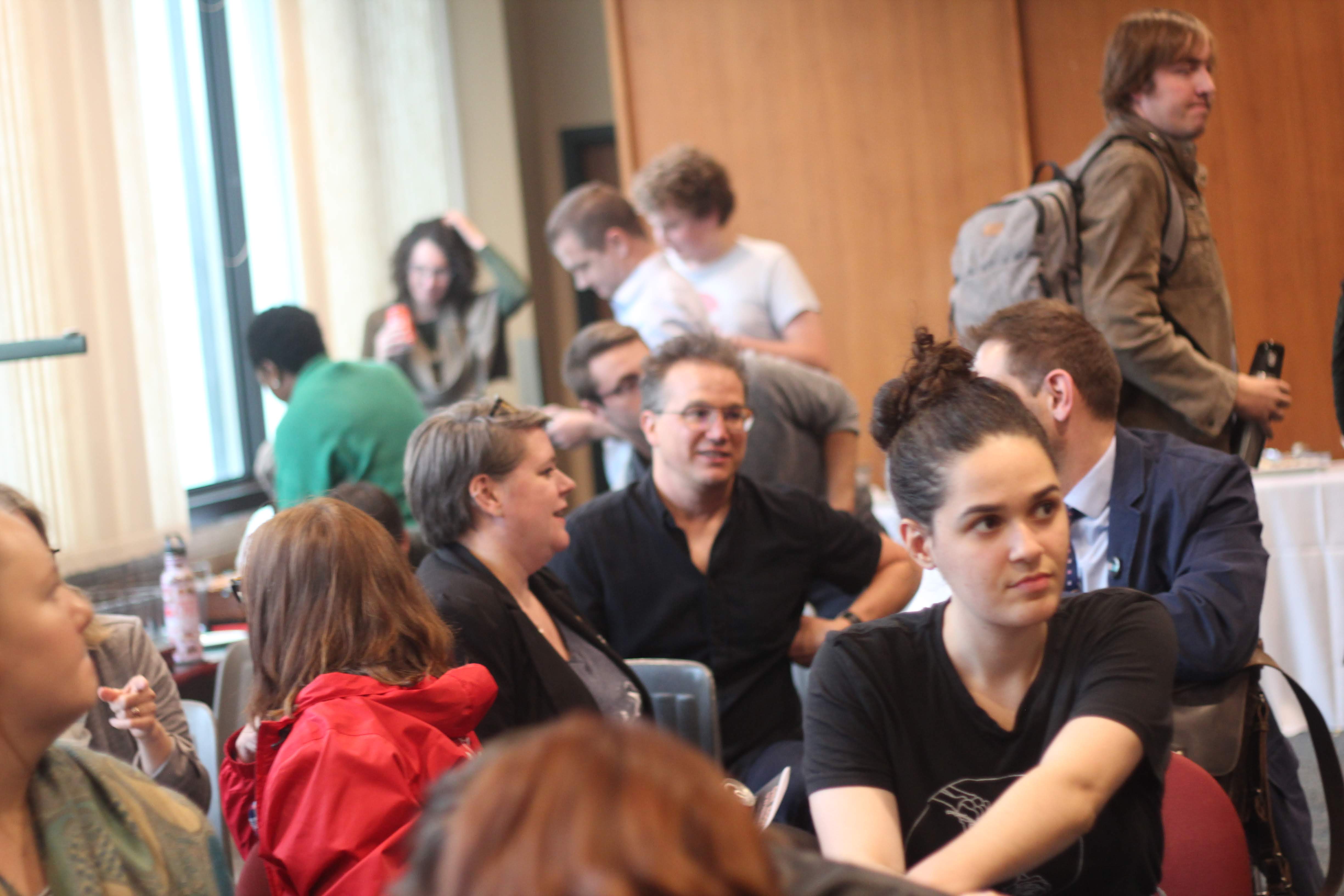September 26 Launch Reception
One Book UWinnipeg
On Thursday, September 26th, over fifty students, faculty, and staff celebrated the official Launch of One Book UW at a Reception, sponsored by the Office of the President and the University of Winnipeg Faculty Association. Speakers included President Annette Trimbee, Dr. Niigaan Sinclair, and Alice RL.
HighWater Press brought a selection of Indigenous comics and graphic novels, and we distributed print copies of our "How Comics Work" booklet. As well, we announced the 1BUW Student Essay and Artwork Prizes (available here).
1BUW Co-organizers Dr. Brandon Christopher and Dr. Candida Rifkind shared the background to the project, referenced the Department of English Land Acknowledgement (available here), and explained the context for 1BUW:
"One thing that One Book programs have in common is the belief that reading is inherently social. As much as reading feels like a private and internal experience, it is also an activity that places us on a continuum between the solitary and the social.
We are first taught to read through social relationships at home and school, and this begins our lifelong socialization as readers: we “stumble” upon books because they are recommended by others (from friends to professors to libraries and booksellers) and our relationships with books begin before we open them and continue after the final page.
As the researcher-librarian Joan Bessman Taylor argues, reading also has a social and political dimension because we develop hypotheses about what we read based on our other experiences with literature and life. By the same token, reading can challenge our assumptions and conventions by opening us up to other ways of seeing, knowing, and behaving.
One Book UW aims to support the university’s commitment to Indigenization by showing how Indigenous storytelling, in both words and images, is important for Indigenous and non-Indigenous readers alike.
We are guided in part by the work of Cherokee writer and Canada Research Chair Daniel Heath Justice, who prefaces his recent book Why Indigenous Literatures Matter with the following:
“Our mindful stories, in all their forms and functions – and whether vocalized, embodied, or inscribed – honour the sacrifices of those who cam before us and who made it possible for us to continue the struggle today as specific peoples in relation with the world. They help us bridge the gap of human imagination between one another, between other human communities, and between us and other-than-human beings.”
References:
Justice, Daniel Heath. 2018. Why Indigenous Literatures Matter. Indigenous Studies Series. Waterloo, Ontario, Canada: Wilfrid Laurier University Press.
Taylor, Joan Bessman. (2012). “Producing Meaning through Interaction: Book Groups and the Social Context of Reading”. In From Codex to Hypertext: Reading at the Turn of the Twenty-First Century. Edited by Anouk Lang. (Amherst: University of Massachusetts Press): 142-43.
